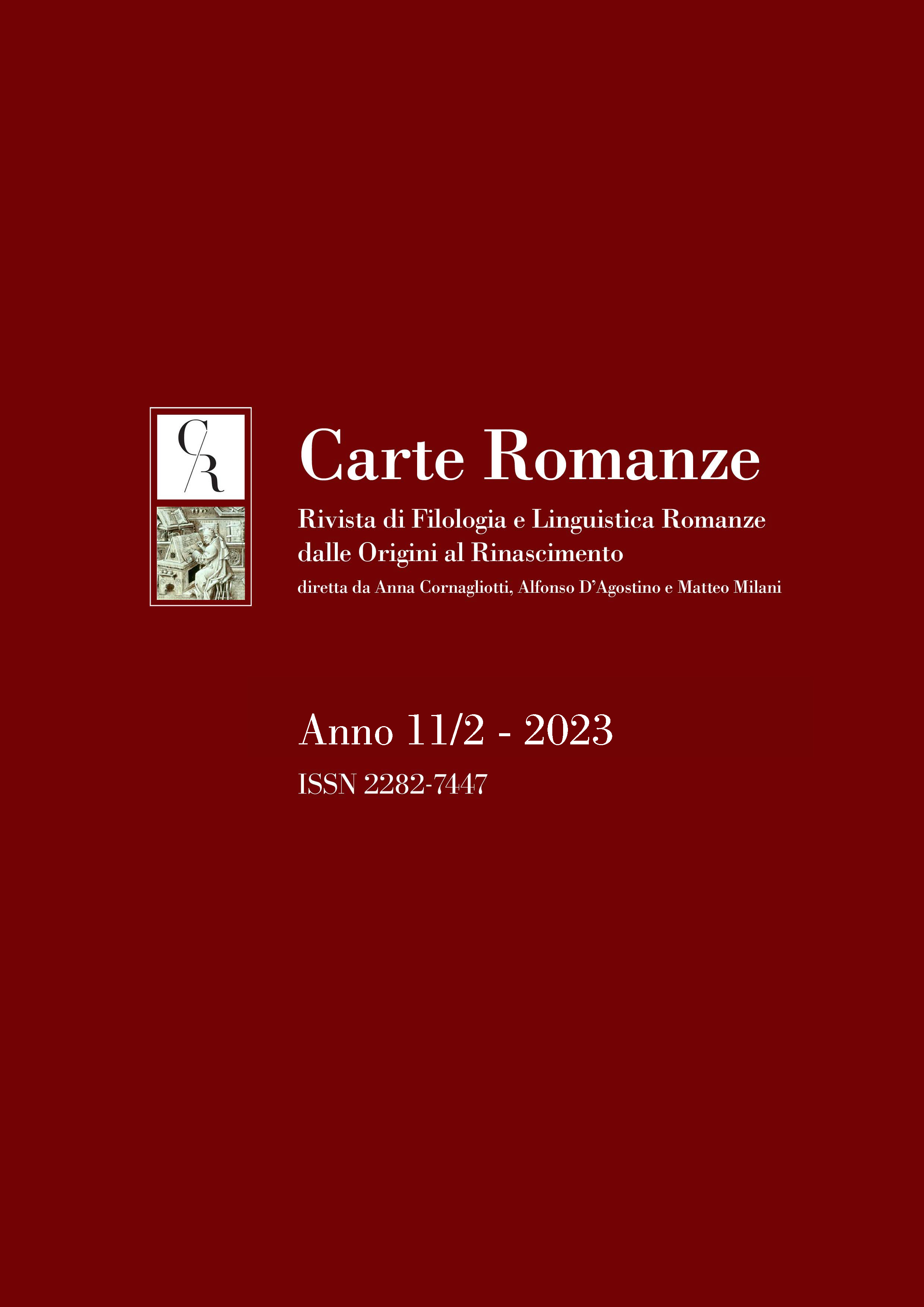Sulla resa degli aggettivi in -TŪRUS e -NDUS: il valdese a confronto con altre varietà di occitano
Main Article Content
Abstract
Since the Vulgata showed a bulk of future participles and gerundives, its translations in ancient Occitan had to face the problem of how to deal with them. In order to assess the different strategies employed, five vulgarizations of the New Testament have been analyzed. While the most western vulgarization (NTL) often uses verbal adjectives with a -dor ending, with either an active or passive force, its eastern counterparts (NTP, QEO, BVC, NTV) almost categorically refuse this solution, resorting instead to various periphrases. Among the eastern vulgarizations, a particular attention is devoted to the behavior of Waldesian texts (BVC, NTV).
Article Details

This work is licensed under a Creative Commons Attribution-NonCommercial-NoDerivatives 4.0 International License.
Carte Romanze si serve di una licenza  Creative Commons. Attraverso la licenza CC-BY-NC-ND gli autori conservano tutti i diritti economici e concedono alla rivista il diritto non esclusivo di pubblicazione, permettendo a chiunque di scaricare il contributo, di leggerlo e stamparlo. Ogni riuso deve prevedere la citazione virgolettata (o comunque riconoscibile), garantendo all’autore la proprietà intellettuale di quanto citato, e segnalando sempre e comunque la rivista come fonte (con l’indicazione dell’annata, del volume e delle pagine). Non è invece concessa a nessuno la modifica del contributo né il riuso per creare opere secondarie.
Creative Commons. Attraverso la licenza CC-BY-NC-ND gli autori conservano tutti i diritti economici e concedono alla rivista il diritto non esclusivo di pubblicazione, permettendo a chiunque di scaricare il contributo, di leggerlo e stamparlo. Ogni riuso deve prevedere la citazione virgolettata (o comunque riconoscibile), garantendo all’autore la proprietà intellettuale di quanto citato, e segnalando sempre e comunque la rivista come fonte (con l’indicazione dell’annata, del volume e delle pagine). Non è invece concessa a nessuno la modifica del contributo né il riuso per creare opere secondarie.
Quando siano rispettate le indicazioni di cui sopra, non è necessario richiedere ulteriori permessi di utilizzazione del materiale né all’autore né al comitato scientifico.

